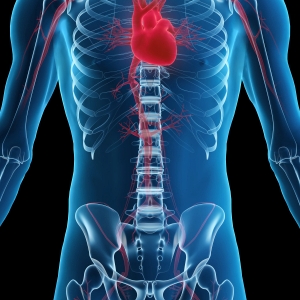
A little more than a week ago Angela Carpenter was 22-weeks pregnant and suffering from a serious arrhythmia, a heart rhythm disorder which threatened both her life and that of her baby. Today her condition has been completely reversed thanks to a pioneering operation, which took place at Netcare Christiaan Barnard Memorial Hospital in Cape Town.
According to Dr Faizel Lorgat, an interventional cardiologist, specialising in the treatment of arrhythmias, the procedure clearly demonstrated that it is possible to correct heart rhythm disorders in pregnant women without the use of medication or X-rays, both of which can be highly dangerous to the foetus. Dr Lorgat says the medical team was delighted that the challenges posed by Carpenter’s condition could be overcome, allowing her to enjoy a normal pregnancy.
“We wanted to avoid the use of medication to control Mrs Carpenter’s heart rhythm disorder because of its toxicity to a 22-week-old foetus. On the other hand, the X-ray system generally used to assist in the remote ablation procedure emits levels of ionising radiation that can also prove harmful to a foetus. We therefore opted to go ahead with the procedure without the benefit of X-rays. To the best of my knowledge, this is the first time that this operation has ever been performed in South Africa without using X-rays,” says Dr Lorgat.
“I feel so much better after the operation and it is a huge relief that it was successful. I was admitted to Netcare Christiaan Barnard Memorial Hospital for the operation last Thursday evening and by Friday I felt fine and ready for discharge,” says Angela Carpenter.
Heart racing out of control
According to Carpenter, before the procedure she experienced episodes during which her heart would start racing out of control. “Sometimes I would feel dizzy and worry that I would pass out. I became very concerned that this condition was serious and visited my doctor,” she says.
Carpenter’s cardiologist at Netcare Blaauwberg Hospital, Dr Jan Smedema, consulted Dr Lorgat and together they decided on the best course of action. “After the operation the arrhythmia was completely reversed. I don’t like taking medication of any sort, even when I am not pregnant, so I am thrilled that we were able to avoid that option,” Carpenter explains.
Dr Lorgat says Carpenter was rightfully concerned about her condition as it was ventricular tachycardia (VT) or a fast heart rhythm that originates in one of the ventricles of the heart. “In fact, during her pregnancy Mrs Carpenter’s heart rhythm became very fast, up to 200 or 300 beats a minute and her episodes sometimes lasted for as long as 20 or 30 minutes. VT is a major cause of cardiac sudden death and it also poses a significant risk to a 22-week old baby, as it tends to starve the foetus of oxygen. We had to act and we had to act fast,” Dr Lorgat explains.
Remote guided ablation procedure
Dr Lorgat says Mrs Carpenter’s medical team decided that the only treatment option open was the remote guided ablation procedure. This involves using a special catheter fitted with a radio frequency device which works like a laser to cauterise blocked or damaged electrical pathways that cause ‘short circuits’ in the heart nerves to resolve the condition. Because of Carpenter’s pregnancy, X-rays had to be avoided and only revolutionary 3D Navix mapping system could be used. According to Dr Lorgat, the two are usually used together.
He says the lack of X-rays made the first part of the procedure more tricky than usual, as X-rays are traditionally used to guide the catheter up from the groin to the heart. However, thanks to many years of experience with these types of procedures Dr Lorgat had no problem finding his way to the heart, and once there, Navix could offer a complete real-time 3D picture. The surgical team was then able to successfully ablate all the damaged electrical pathways in Carpenter’s heart.
According to Chris Tilney, general manager of Netcare Christiaan Barnard Memorial Hospital, Dr Lorgat and his team’s breakthrough procedure makes safer alternatives to medication available to pregnant women with VT. “It also illustrates that with the necessary technology and expertise, the use of X-rays can be avoided when performing such operations. This is great news for pregnant women who are concerned about the side effects of these interventions. It is a privilege for us to now be able to offer this revolutionary form of treatment at our facility,” Chris Tilney concludes.




 Publications
Publications
 Partners
Partners















